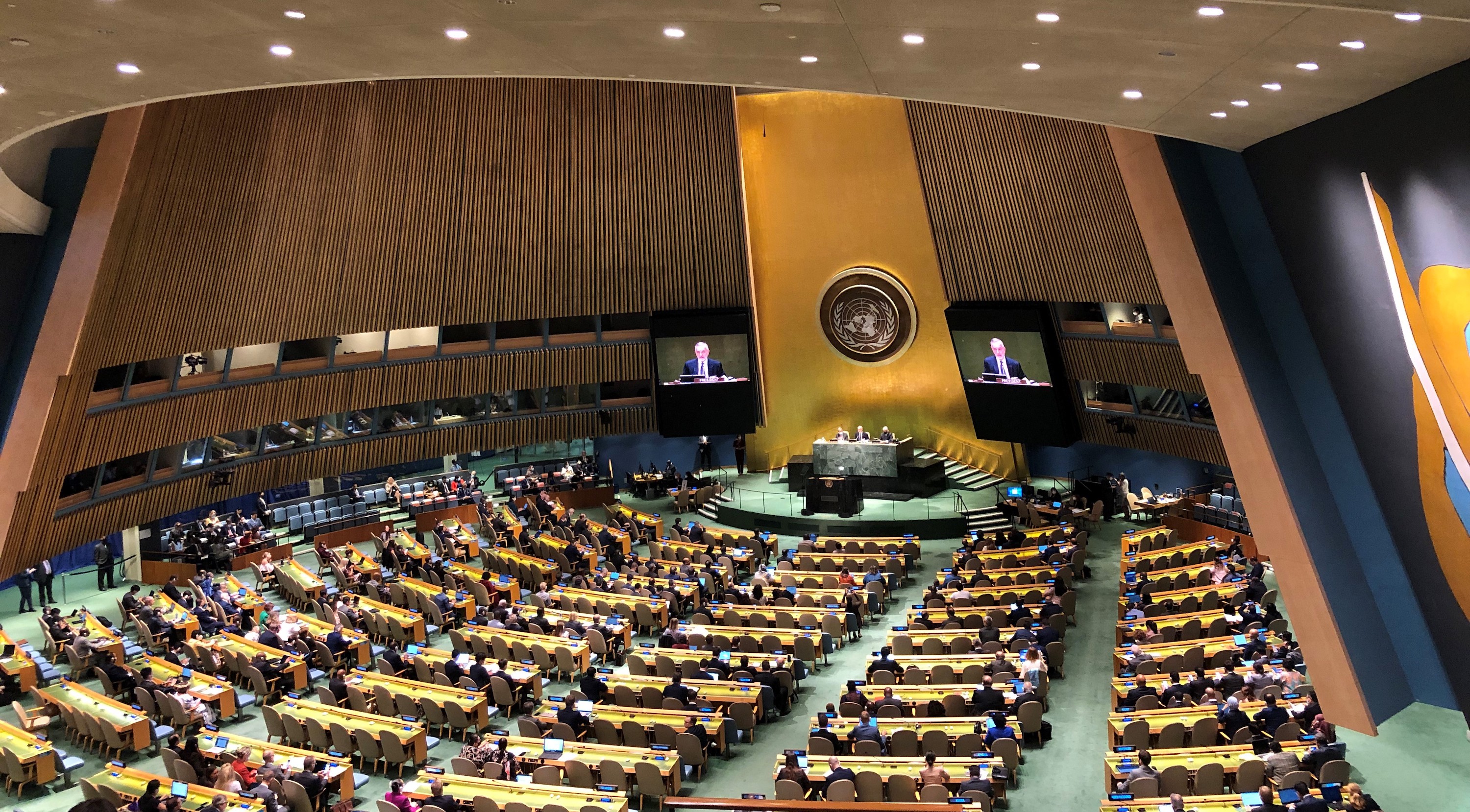August 30, 2022
Princeton University's Program on Science and Global Security (SGS) organized four events at the Tenth Review Conference of the 1970 Non-Proliferation Treaty (NPT) held at the United Nations in New York from 1-26 August 2022. The NPT entered into force in 1970 and now has 191 member-states. The treaty aims to eliminate nuclear weapons, to safeguard the fissile materials that are the key ingredients for nuclear weapons, and to assure the peaceful use of nuclear energy.
Every five years NPT parties meet in a Review Conference to assess and advance the purposes and the provisions of the treaty. The 2022 Review NPT Conference (delayed from 2020 because of the covid pandemic) failed to produce a final agreed final document on conclusions and recommendations, as did the 2015 Review Conference. Ray Acheson, a visiting researcher with SGS from the Women’s International League for Peace and Freedom and leader of its disarmament program Reaching Critical Will, reported on the issues, debates and national positions at the conference with ten issues of NPT News in Review.
All four SGS events at the NPT Review Conference were co-sponsored by NPT states.
The first SGS event, on August 5, 2022, and co-sponsored by Brazil, Canada, Germany, Ireland, and New Zealand, was the release of Global Fissile Material Report 2022: Fifty Years of the Nuclear Non-Proliferation Treaty: Nuclear Weapons, Fissile Materials, and Nuclear Energy. This report by the International Panel on Fissile Materials (IPFM) reviewed the achievements and limits of the NPT so far. Founded in 2006 and based at SGS, IPFM is a sixteen-nation independent group of experts. SGS co-directors, Alexander Glaser and Zia Mian are co-chairs of IPFM together with Professor Tatsujiro Suzuki of Nagasaki University. The report was co-edited by Zia Mian and SGS visiting researcher Moritz Kütt who also is Senior Researcher at the Institute for Peace Research and Security Policy at the University of Hamburg.
The second event, on August 9, 2022, was a panel presentation “Revisiting the FMCT: The Unfinished Business of the NPT,” co-sponsored by Austria, Brazil, Canada, Germany, and Japan. The goal of a Fissile Material Cutoff Treaty (FMCT) was endorsed by the UN General Assembly in 1993 as a means to ban the production of plutonium and of highly enriched uranium for nuclear weapons. IPFM in 2009 proposed a draft text for an FMCT, which Canada, Japan, and the Netherlands jointly submitted for discussion to the UN Conference on Disarmament. In their presentations, Zia Mian, Pavel Podvig (also affiliated with UNIDIR), and SGS co-founder and first co-chair of IPFM Frank von Hippel assessed the goals of the FMCT, the failure to start treaty talks, and the value of broadening the scope of the possible treaty to include banning plutonium separation and banning the production of highly enriched uranium for any purpose since they are weapon-usable fissile materials.
On August 17, 2022, together with Austria, SGS organized the discussion “Humanitarian Consequences of Nuclear Weapons.” The topics included the catastrophic immediate effects of even relatively low-yield nuclear weapons, the human and environmental effects of nuclear weapons testing and of nuclear war, including the civilization-ending possibility of nuclear winter, and expressions of nuclear weapons and their consequences in the public imagination in China and in South Asia. Presenters included Zia Mian and Moritz Kütt and SGS visiting researcher Tong Zhao (also affiliated with the Carnegie-Endowment for International Peace).
The fourth SGS event, on August 23, 2022, was “Rethinking Nuclear Disarmament Verification” co-sponsored by Brazil, Germany, Ireland, and New Zealand. SGS co-director Alexander Glaser, associate research scholar Sébastien Philippe, and postdocs Igor Moric and Sara Al-Sayed presented. The topics included nuclear disarmament verification that goes beyond the traditional focus on nuclear warheads and materials, new concepts for onsite inspections at sensitive military facilities, the emerging revolution in Earth observation by imaging satellites and the rapidly expanding availability of commercial imaging systems, and the opportunities and challenges of societal or citizen-led verification in assessing compliance with disarmament treaty obligations.
SGS-affiliated PhD students Jihye Jeon, who was a member of South Korea’s NPT delegation in 2015, and Eric Lepowsky also attended the NPT Review Conference.
